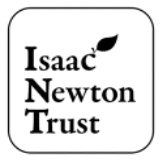| 20 Feb 2024 | 17:00 - 18:30 | Online | |
- Description
- About the inReach project
Description
Part of the inReach – /ɪn riːtʃ/ project
Convenor
Kelly Fagan Robinson (Department of Social Anthropology)
Speakers
- Carey Jewitt (Professor of Technology and Learning UCL Knowledge Lab and Chair of UCL Collaborative Social Science Domain)
- Lisa May Thomas (Dance artist Senior Researcher at the ESRC Centre for Sociodigital Futures, University of Bristol)
Summary
In this seminar we will present and reflect on the development of Unlocking Touch, a participatory binaural performance, responding to Covid-19 lockdowns, restrictions, and reverberations in the UK. It is an inter-disciplinary project developed through the period of Covid-19 (2019-2022) which draws on practices from performance, dance, theatre/dramaturge, immersive technology, and social science research. It experiments with combining sound-technology and somatic practices to confront and dramatize the challenges which surfaced through Covid-19, to explore the lack of physical contact and felt proximity that many experienced through this period, and to expand notions of touch beyond the limited confines of physical skin-to-skin or surface-to-surface contact. We will share extracts of the performance and discuss the role of performance in representing and reflecting on our own and others’ experiences of challenging experiences such as the pandemic and consider the potential of embodied participatory performance to rehearse or prepare us for new modalities of sensing and being together in the return to precarious ‘new-normals’.
Biographies
Carey Jewitt is Professor of Technology and Learning at UCL Knowledge Lab in the Dept of Culture, Communication and Media (UCL), and Chair of UCL Collaborative Social Science Domain. Her interests are how digital technologies shapes interaction, interdisciplinary methodological innovation, touch, and multimodality. Carey is Director of InTouch an ERC Consolidator Award which investigates the sociality of digital touch technologies for future communication. She is a founding editor of two SAGE journals, Multimodality & Society, and Visual Communication. Her recent publications include Digital Touch (Polity Press, 2024), Interdisciplinary Insights for Digital Touch Communication (Springer, 2020) and articles in New Media & Society, Information, Communication & Society, Qualitative Research, The Senses and Society.
Dr Lisa May Thomas is a dance artist and researcher. She is a Senior Researcher at the ESRC Centre for Sociodigital Futures at the University of Bristol. Lisa is a resident at the Pervasive Media Studio in Bristol and Studio Wayne McGregor QuestLab Network Artist. She investigates the intersections between dance, embodied participation and immersive technology, and her film and performance work has been experienced by audiences across the world. Her practice-as-research PhD (2021) at the University of Bristol investigated the role of digital technologies in performance, combining dance-somatic and improvisation practices with multi-person VR technology. She directed VR participatory performance Soma (Bloomsbury Theatre 2022 and upcoming UK and EU tour in 2024-25). She has presented her work at numerous academic events. Lisa teaches somatic practice, dance technique, improvisation/contact improvisation, dance film, and performance making with immersive technologies in HE, professional and community dance contexts. She is currently undertaking CPD training to be a breath-work instructor.


About the inReach project
About inReach – /ɪn riːtʃ/
- inside the distance to which someone can stretch out their hand.
- within the capacity of someone to attain or achieve something
- (inversion of ‘outreach’) considers the expertise of those usually closed off from academic and artistic reception.
The term ‘inReach’ signifies any action which reshapes elite institutions as inclusive domains through centrally placing work by people otherwise absent in traditional arts and academic spaces. This series will critically question and therefore set to prove false the too-common trope that certain people are ‘hard to reach.’ By bringing artists, academics, and key local publics together via CRASSH, inReach will amplify the underacknowledged value of lived expertise of socially marginalised people, while also fostering ongoing debates about transience, stigma and inequality in the UK.

